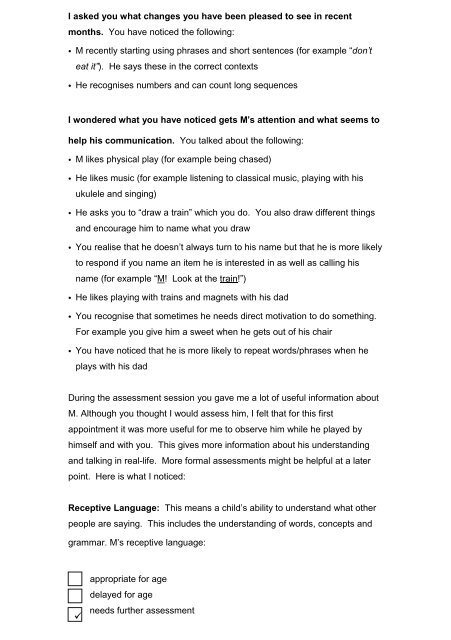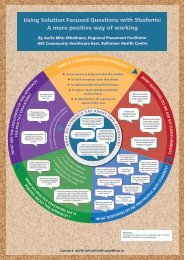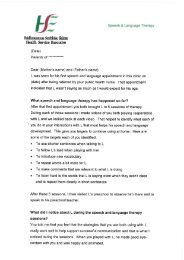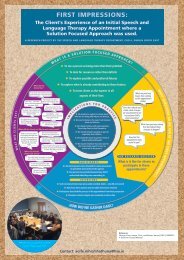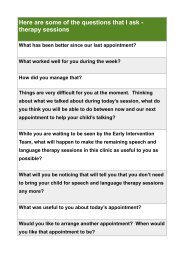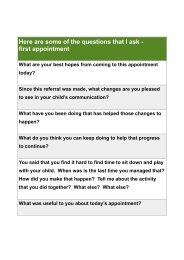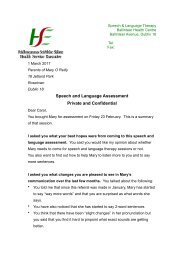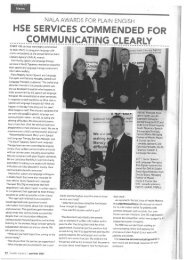Example of letter written after first appointment
You also want an ePaper? Increase the reach of your titles
YUMPU automatically turns print PDFs into web optimized ePapers that Google loves.
I asked you what changes you have been pleased to see in recent<br />
months. You have noticed the following:<br />
• M recently starting using phrases and short sentences (for example “don’t<br />
eat it”). He says these in the correct contexts<br />
• He recognises numbers and can count long sequences<br />
I wondered what you have noticed gets M’s attention and what seems to<br />
help his communication. You talked about the following:<br />
• M likes physical play (for example being chased)<br />
• He likes music (for example listening to classical music, playing with his<br />
ukulele and singing)<br />
• He asks you to “draw a train” which you do. You also draw different things<br />
and encourage him to name what you draw<br />
• You realise that he doesn’t always turn to his name but that he is more likely<br />
to respond if you name an item he is interested in as well as calling his<br />
name (for example “M! Look at the train!”)<br />
• He likes playing with trains and magnets with his dad<br />
• You recognise that sometimes he needs direct motivation to do something.<br />
For example you give him a sweet when he gets out <strong>of</strong> his chair<br />
• You have noticed that he is more likely to repeat words/phrases when he<br />
plays with his dad<br />
During the assessment session you gave me a lot <strong>of</strong> useful information about<br />
M. Although you thought I would assess him, I felt that for this <strong>first</strong><br />
<strong>appointment</strong> it was more useful for me to observe him while he played by<br />
himself and with you. This gives more information about his understanding<br />
and talking in real-life. More formal assessments might be helpful at a later<br />
point. Here is what I noticed:<br />
Receptive Language: This means a child’s ability to understand what other<br />
people are saying. This includes the understanding <strong>of</strong> words, concepts and<br />
grammar. M’s receptive language:<br />
<br />
appropriate for age<br />
delayed for age<br />
needs further assessment


